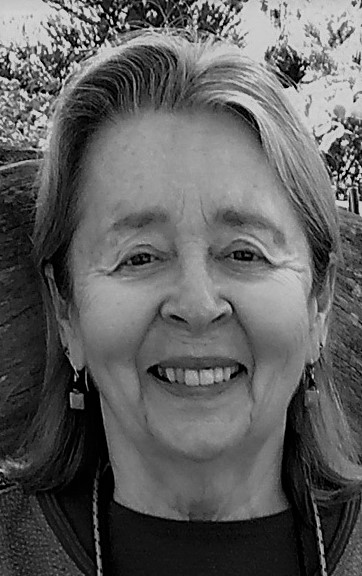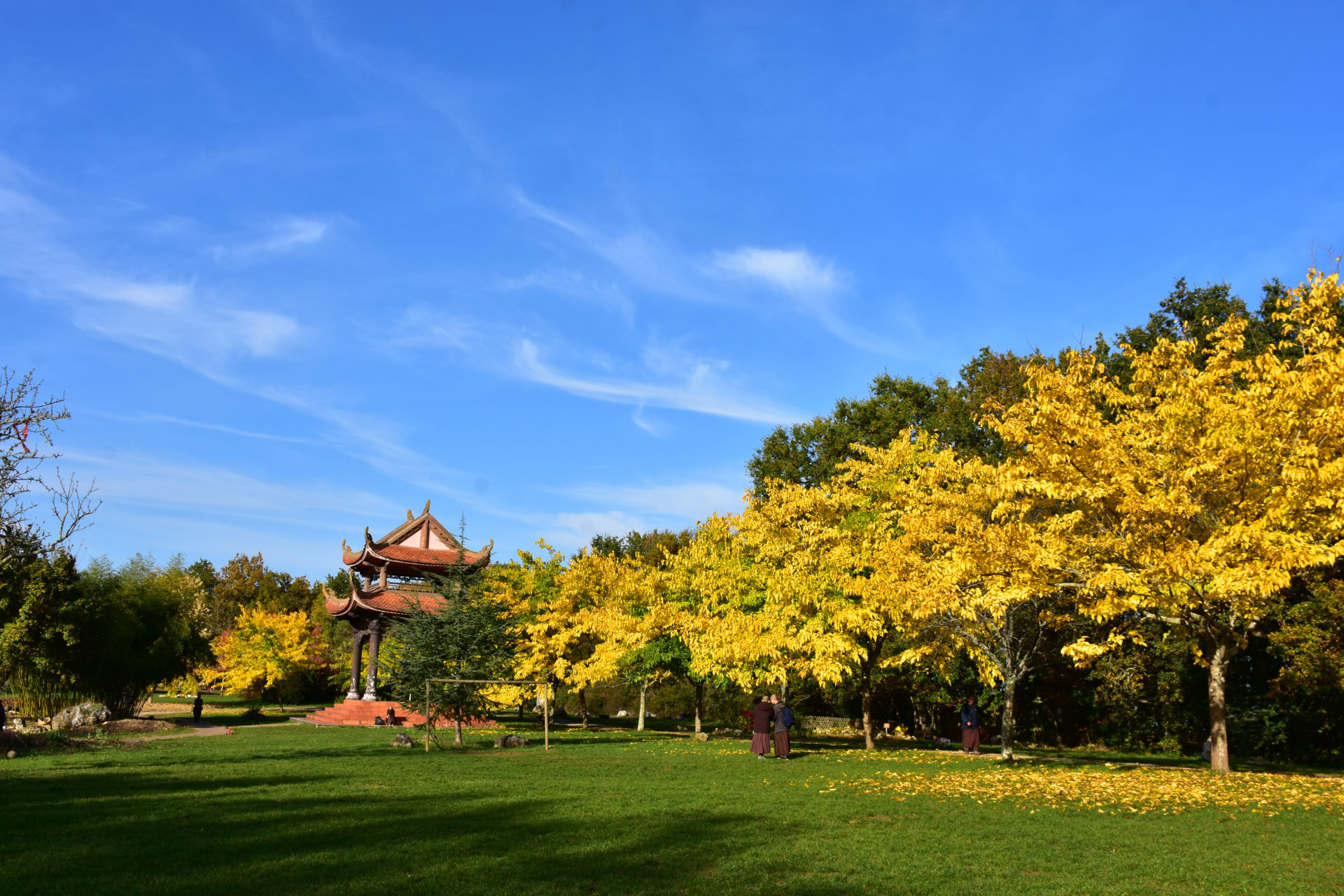By Susannah Ristine

Not the Only Way
When I keep coming back to the First Mindfulness Training, I have noticed my tendency to say, “Oh yes, the mindfulness training on openness, my old friend—so familiar.” I have become aware of my assumption that the First Mindfulness Training was easy because I knew it so well. I had mistakenly believed I had already accomplished all I needed about openness.
By Susannah Ristine

Not the Only Way
When I keep coming back to the First Mindfulness Training, I have noticed my tendency to say, “Oh yes, the mindfulness training on openness, my old friend—so familiar.” I have become aware of my assumption that the First Mindfulness Training was easy because I knew it so well. I had mistakenly believed I had already accomplished all I needed about openness. Through paying attention in Dharma sharing, readings, and interactions with friends and family, I have awakened to find that the training is not only a foundation for all the other trainings, but it is also a beacon to shine on myself, illuminating my ignorant conclusion that I’ve got this training conquered.
When I think I have finished developing my openness, I separate myself from others and make myself better than others. I also make the Buddhist teachings and precepts greater than other spiritual teachings by closing the door on insights that can lead to an increased understanding of and a compassion for other views. Coming back to the First Mindfulness Training, I struggle with patterns that have settled into my store consciousness—patterns that contradict my belief I am open to other views. With this in mind, I am paying more attention to nurturing openness within myself.
Inner Openness
Writing has been a compliment to my meditation and a practice in itself. I use a teaching of Thay’s to settle into my writing “Stop, calm, rest, heal” to help me pay attention with as little distraction or interference as possible; and the guidance of “heal” has been essential to opening up to myself.
I also follow a mantra in Gail Sher’s book One Continuous Mistake: Four Noble Truths for Writers: “Without memory, without desire, without understanding.” It helps me to start fresh and to be open to whatever arises without any preconceived notions.
When I sit down to write again and again with these tools, I create a relaxed atmosphere and a clear mind that allows me to be open to whatever spontaneously arises. When I’m not in the way, I practice full awareness of my mind and body. When I notice I’m straying from the open, uncluttered trail, I repeat “Stop, calm, rest, heal” or do a walking meditation. Both of these practices help me calm body and mind and listen deeply to myself. In this way, I pay attention, honor insights, and bring openness to my writing and spiritual practice—and to my life.
I use these same calming tools with people I trust to listen deeply to me, contributing to my inner openness and my honesty with others. Talking with another person mutually enhances the truthfulness and insight for both of us. By slowing down to listen deeply and to share, I find my own truths and develop deeper insights. As I hone my skills in listening mindfully to myself, I open my heart to others.
Hearing Others’ Views
To be open to the views of others, I need to be aware of whatever feelings arise in me as I listen to their expressions. I have noticed that feelings such as anger fester if I don’t recognize them, name them, and take care of them. One of the ways I take care of a feeling is to focus on that feeling in the present moment, breathe in and out, and allow at least two minutes for the feeling to subside. I can return to that feeling at another time, if needed. If I am calm and able to rest with whatever feelings come up for me, I can see and hear the suffering in another person and allow my compassion to arise. Then there is the possibility I can understand that other person, no matter how different their beliefs are from mine.
By coming back to the First Mindfulness Training, I am increasing my understanding and acceptance that my happiness is not separate from the happiness of others. By maintaining openness in my mind and my speech, I realize that I foster harmony in my family, my community, and my extended relationships, and thus contribute to the benefits of interbeing for myself and all beings.
Openness to the views of others supports my efforts to change an unjust situation without taking sides. In personal relationships, I find that love and understanding most readily contribute to the likelihood of transformation. My children and grandchildren offer many opportunities to practice listening without taking sides, challenging me to remain open to my own suffering and to the suffering of others. When I bring love and understanding into conflicts and remain open to hearing all sides with compassion, the dissolution of fanaticism and violence in myself, my loved ones, and even in the world is possible.
By observing the suffering and transformation of suffering in fellow Sangha members, I see the benefit of openness within the Sangha in both Sangha Caretaking Council meetings and Dharma sharing. When Sangha members share openly, an interchange of deep sharing occurs. Openness seems to beget openness in the Sangha. Encouraging consensus in the Sangha Caretaking Council also fosters open sharing of all views, enabling the Sangha to benefit from the collective wisdom.
For example, tension arose within my home Sangha when some members wanted to share Dharma readings by Dharma teachers from non-Plum Village traditions. Sally and I, who are Order of Interbeing members in the Sangha, offered to consult with Order of Interbeing members from another Sangha and a Dharma Teacher. The Sangha was wholeheartedly in favor of those consultations. Sally and I presented in a Sangha Caretaking Council the options that came from the consultations. The Sangha was able to have a discussion and make a consensual decision for bell minders to choose a reading from another tradition, if they want, at the last Sangha meeting of each month. So far, this is working well.
Nurturing Openness
Openness with myself and others leads to nonduality, acceptance, and inclusiveness. By exercising nondiscrimination, even with those who are not loved ones, I experience interbeing in my heart. Embracing equanimity is one of the challenges related to openness.
A difficult balance arises between the mantra “Without memory, without desire, without understanding” and the exploration of a particular topic in my meditation, my thinking, or my writing. A practice that nurtures my openness is reciting in silence or out loud, “Listen, listen, listen; this wonderful sound brings me back to my true home,” inviting the bell, and listening to the full sound. In this way, I clear my mind and my heart, and begin again in the present moment. I benefit from singing a song such as Happiness is Here and Now to lighten up and let go of worrying. This reassures me that I can continue practicing openness mindfully in my meditation, my writing, and my interactions without the burdens of grasping or aversion.
One of the most helpful ways to nurture my openness is to schedule time with a Dharma sister or brother. I have a weekly FaceTime session with a Dharma sister, in which we study a sutra, recite the Fourteen Mindfulness Trainings, focus on a mindfulness training, or share something immediate about our lives.
Continuing Openness
Ongoing sharing with close friends, family, or with Dharma sisters and brothers supports and develops openness in myself and acceptance of the views of others. Even though Thay teaches that the First Mindfulness Training includes the other mindfulness trainings, it is the relation of the First to the Second, Third, Eighth, and Ninth that stands out for me as the broader teaching. Continuing openness means making sure I listen deeply to those with different views from my own.
One of my sons has political views that are different from mine. I love this son and want to understand him. By listening deeply, without thinking about my own opinions, judgments, or possible responses, I have been able to increase my closeness with him in spite of our differences. I have also been doing some reading, such as Strangers in Their Own Land by Arlie Russell Hochschild, to increase my understanding of people who have political and spiritual beliefs different from mine that might seem to be in contradiction with their own life experiences. This has helped me to better understand my son and his views that have puzzled me.
Continuing openness means not only compassionate listening but also truthful and loving speech, as in the Ninth Mindfulness Training. Another son bought a car from my husband and me. When he went to register the car, he would have had to pay sales tax according to the bill of sale. He wanted to draft a new bill of sale for us to sign, saying that it was a “family transfer” and he paid nothing for the car. I told him we were not willing to lie. He tried again to convince me to sign a new bill of sale as a “family transfer,” quoting an employee at the vehicle registration office who said that everyone did it. I told him I understood his not wanting to pay the sales tax, but we were not willing to sign something that was not true. He responded that he respected our decision. Most important for me with this son was that I concentrated on listening openly and understanding him, on speaking up truthfully and lovingly, and on not trying to change him. He was then able to honor our decision and still hold onto his own view.
Another example occurred in Sangha that brought to bear the Tenth Mindfulness Training. A person of color in the Sangha told me she was offended by what another person said at a Sangha gathering. She was not willing to have a Beginning Anew session with that person. I breathed deeply, took care of my own feelings, and listened to her feelings against Beginning Anew. She agreed that it would be appropriate for me to say something to that other person, and we worked out exactly what I would say. I told her that I would consult with another Order of Interbeing member in the Sangha and let her know of any changes. I spoke to the other person in private and listened compassionately to his side. Afterwards, these two Sangha members seemed at ease with each other in Sangha, demonstrating caring and understanding. Even though I initially preferred that they engage in Beginning Anew, I listened with openness to the objections of the person of color who was unwilling to be involved in that process.
I am continuing to explore and write about the mindfulness trainings that address openness and acceptance of the feelings and views of others. Such communication supports harmony and encourages peace amongst us. As I humbly continue this investigation, I have to focus on my own feelings and my own behavior. To these ends, Thay encourages us to be our best in ourselves while we are alive and at the same time to see we are not separate from each other. The Fourteen Mindfulness Trainings are precepts for members of the Order of Interbeing to follow in their daily lives—guidelines for everyday living. Thay recommends we aspire to live our daily lives seeing everything in the light of interbeing.

Susannah Ristine, True Manifestation of Diligence, has been an Order of Interbeing member since 2017. She is a retired psychologist, mother, and grandmother, and practices with the Peaceful Harbor Sangha in Portland, Maine, US.

